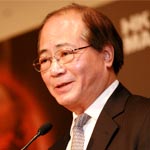
HK Government uses lessons from HR to solve future manpower challenges. 99,000 jobs to be created in PolyU-Boeing joint venture.

Dependency concerns
Ng referred to the dynamic world as one with new ways of performing and behaving; outlining Hong Kong’s unique position whilst flagging a crimson danger sign against its ageing population. Under these circumstances the region must deliver sufficient, quality human capital to propel growth. He cautioned that whatever is not done today would reap undesirable consequences a few years down the road and offered assurance that students would be groomed as the skilled workforce of the future, labelling the students of today as the ‘sustainable factor of tomorrow.’
Innovation and critical thinking poor
To the outside world the education system of Hong Kong is generally considered a strong one. In 2009, for example, an international comparison of educational standards ranked Hong Kong within the top five education systems in the world in the categories of reading capacity, science, and mathematics. That said, criticism was levied on the standard of English and the report signalled difficulties in problem solving ability. Ng expressed the common perception of graduates within Hong Kong—a set of willing individuals who are highly proficient in executing instructions and thereby primed to run successful back-office operations—but who fall short in the innovation and critical thinking required to drive leading economies. In short, Hong Kong students head for the world of work with their thought processes remaining firmly within the constraints of a pre-defined box.
Re-address and reform
The Year 2000 enquiry into Hong Kong education which concluded that the system was too examination-focused prompted a major reform in 2009 set to shake the dynamics; the length of secondary school study changed from seven to six years and university degree courses increased in length from three to four years. Ng explained that this move was aligned with a multi-intelligent mode of working where all students are able to pursue their individual areas of interest. The economy requires a diverse set of skills, children posses a range of such aptitudes in latent form, and a mature education system should provide the key to unlock them.
Ng explained that a multi-dimensional platform for education should deliver this diversity, pointing to the 20 elective subjects and 30 applied learning areas within the curriculum. Furthermore, the introduction of Liberal Studies is a radical move for Hong Kong education in a move to tackle the apparent mismatches. The syllabus does not require a course text book; students must source information, build critical thinking, and articulate their own ideas. Importantly students must take ownership of the subject to deliver an individualised result.
Lessons from HR
The new Government, he continued, was determined to be ‘action focused’ and referred to the Knowledge, Attitude and Practices framework (KAP) often applied to training programmes, that he had utilised since his early days in HR. This framework would underpin the future Hong Kong education policy.
Knowledge
Ng cited a Hong Kong Polytechnic University joint venture with Boeing which is set to create 99,000 new positions in the region over the foreseeable future. The focus was a practical, rather than academic one, built on knowledge of aircraft structure and maintenance. Hong Kong must embark upon more of such endeavours to strengthen its knowledge base in a competitive global market.
Attitude
Ng explained the importance of how we treat our talent. For example, he had made a determined point of meeting with Hong Kong students studying overseas to encourage them to return to Hong Kong with their newly developed set of skills. These students reported little encouragement or incentive to return prior to his efforts. This attitude should be expanded to permeate the Hong Kong of the future.
Practices
The government’s position is that education is fundamental to Hong Kong’s ability to sustain growth and this will be demonstrable through its practices. For every five dollars of government spending, it pledges to spend one on education. Ng listed a wish-list of objectives as follows:
- pre-school education should become part of the formal system on the evidence that personality formation is strongly influenced by experiences before the age of three;
- by 2015 one third of students should study at University and two thirds of students should undertake higher secondary schooling;
- the EDB should increase the international exchange capacity three-fold; and encourage overseas internship programmes.
Hong Kong remains very much on the map where world developments are concerned. Ng cited two recent developments in R&D—one in energy reduction and one in the treatment of cancer—both of which had stemmed from Hong Kong. He heeded however that there will soon be a greater number of people dependent upon the income-earning population and that missing skills in creativity and innovation must be honed. For this reason the need to forge powerful and durable links between education and industry cannot be underestimated. Hong Kong must join the most forward-thinking, competitive nations in doing just that.




